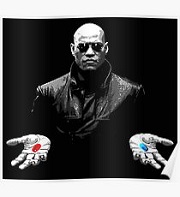(Total Views: 515)
Posted On: 03/15/2020 2:01:37 AM
Post# of 157302

Re: crazyjogger925 #21591
I know people that drink a shot of alcohol before bed also thinking it helps prevent and or helps with colds. I’ve always thought they were crazy, but after reading one way how coronavirus infects recently, maybe these cultural traditions have something to them. I’m not sure if urine has enough ammonia though, a shot of jack daniels sounds a lot better.
https://www.cnn.com/2020/03/12/opinions/coron...index.html
Bruce L. Davidson MD, MPH is a pulmonary physician and researcher in Seattle, an expert in respiratory transmission of infection, and former president of the National Tuberculosis Controllers Association and member of the Advisory Council for the Elimination of Tuberculosis. The opinions expressed in this commentary are his own.
What you may not know about coronavirus -- the disease that has reached pandemic proportions -- is that one of the times you are most vulnerable to contracting it is while you're sleeping. Here is how this can happen, and what you can do about it.
Coronavirus infects cells below the voice box, in the airways and deep in the lungs, unlike flu viruses which start with your nose and throat. Other than via tiny particles inhaled in air, coronavirus reaches those cells via fluid in the nose or throat that sneaks past your voice box (this is called aspiration) and slides down your windpipe, or trachea.
Studies have shown that at least half of normal people -- young, middle-aged, elderly -- aspirate at night during sleep. By the end of a week, probably we all have
And since you may well have been exposed anyhow, remove any coronavirus already around your nose and throat: Wash your hands and face well with soap and warm water, including -- on a finger -- a quarter-inch into each nostril. Then gently blow your nose. DON'T use those irrigating devices, like neti pots, that might force virus further inside! Brush your teeth and tongue, swish and spit, and gargle once or twice with an antiseptic mouthwash.
The key is to minimize the virus burden around and inside your face before you go to sleep. Limit sedation before sleep during an epidemic. If you use a device at night for sleep apnea, make sure it remains away from where people could cough, sneeze and breathe on it, and clean it regularly.
https://www.cnn.com/2020/03/12/opinions/coron...index.html
Bruce L. Davidson MD, MPH is a pulmonary physician and researcher in Seattle, an expert in respiratory transmission of infection, and former president of the National Tuberculosis Controllers Association and member of the Advisory Council for the Elimination of Tuberculosis. The opinions expressed in this commentary are his own.
What you may not know about coronavirus -- the disease that has reached pandemic proportions -- is that one of the times you are most vulnerable to contracting it is while you're sleeping. Here is how this can happen, and what you can do about it.
Coronavirus infects cells below the voice box, in the airways and deep in the lungs, unlike flu viruses which start with your nose and throat. Other than via tiny particles inhaled in air, coronavirus reaches those cells via fluid in the nose or throat that sneaks past your voice box (this is called aspiration) and slides down your windpipe, or trachea.
Studies have shown that at least half of normal people -- young, middle-aged, elderly -- aspirate at night during sleep. By the end of a week, probably we all have
And since you may well have been exposed anyhow, remove any coronavirus already around your nose and throat: Wash your hands and face well with soap and warm water, including -- on a finger -- a quarter-inch into each nostril. Then gently blow your nose. DON'T use those irrigating devices, like neti pots, that might force virus further inside! Brush your teeth and tongue, swish and spit, and gargle once or twice with an antiseptic mouthwash.
The key is to minimize the virus burden around and inside your face before you go to sleep. Limit sedation before sleep during an epidemic. If you use a device at night for sleep apnea, make sure it remains away from where people could cough, sneeze and breathe on it, and clean it regularly.
